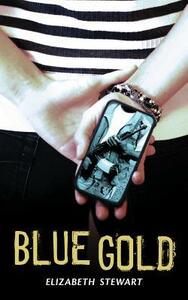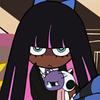Take a photo of a barcode or cover
informative
inspiring
tense
medium-paced
Plot or Character Driven:
Character
Strong character development:
Complicated
Loveable characters:
Complicated
Diverse cast of characters:
Yes
Flaws of characters a main focus:
Yes
The book felt pointless and it was grueling to get through at times. I really couldn't stand Fiona because it was annoying reading about her first world problems in between Sylvie and Laiping's more dire situations. It didn't help that the book didn't necessarily take Fiona's situation too seriously either. I just wanted to skip ahead every time we had to focus on her.
I didn't like the white savior ending, whereFiona's dad just saves Sylvie with his money . I also hated that the only way the characters connect is basically learning about that from the internet . Moreso I was disappointed how there was no satisfying resolution for Laiping like the others, and she felt underutilized. Why couldn't they have met online or something at least? Or the settings couldn't make more sense, like having Sylvie be in a coltan mine or even trying to be an exchange student in one of the other leads' home countries? And why so much emphasis on like boy troubles? It felt like there was a lot of squandered potential and so much of the book was bogged down by unnecessary boy troubles and shallow drama that undermined the heavier themes it could have explored.
I didn't like the white savior ending, where
Moderate: Rape, Violence, Sexual harassment
Spoiler
What I liked most about this book was that Laiping's story doesn't resolve. She's still stuck in a factory, making a very low wage, with nothing but a decent comeback for a happy ending.Besides that...
It's not bad. It's not particularly special and while it seems to be struggling to become the teenage American Beauty ("look closer") it's more pedestrian than exceptional. Fiona's story is underdeveloped and obviously included to interest the average reader and the writing is often clumsy.
In her novel, Blue Gold, Elizabeth Stewart explores the horrible hidden costs of technology. There are three stories intertwined, exploring the lives of teenage girls in Africa, Asia, and North America. The characters are fictional but the conflicts are real and this is not a light fluffy read. There are heavy topics and a good dollop of guilt for those of us who benefit from the cell phone industry.
Sylvie’s life in the refugee camp and the horrors that brought her there are shocking and sad. Her dedication to holding her family together, and her bravery makes her an admirable young woman. She aspires to help others when she could have wallowed about her mistreatment. Her struggle to understand how the Canadians who she saw as saviours may have instigated the conflict that caused her woes is eye opening. Violence, rape, and child soldiers are all part of her story.
Laiping’s unreasonable working conditions in China will make Canadian teens grateful for their less than ideal part-time jobs. I think her story will be easier to relate to than Sylvie’s because working long hours and not getting decent paid or given respect is something that Western kids may experience on a less drastic scale. Her lack of opportunities is disheartening.
Fiona takes for granted the products the other girls have suffered to produce. She is careless with privacy, and like many young girls, regrets sharing a half naked photo of herself when it is posted online for everyone to see.
Blue Gold would make for an interesting book club discussion. How can we as consumers ensure that we aren't causing unnecessary harm in return for our luxuries? The author includes a few resources at the end for readers to educate themselves.
I went to see Mockingjay Part 1 and it made me sad to hear that so many teens seemed to think the movies are just about action and cute boys. The Hunger Games is about the same thing this book is: the exploitation of poor people for the cheap production of luxuries. In this case North America is the Capitol , and Congo and China are the exploited districts. I have always thought The Hunger Games was a fantastic way to broach this topic with youth but overhearing a lot of shallow comments during the film I feel like many are not reading between the lines. Hopefully Blue Gold is direct enough to reach them.
Sylvie’s life in the refugee camp and the horrors that brought her there are shocking and sad. Her dedication to holding her family together, and her bravery makes her an admirable young woman. She aspires to help others when she could have wallowed about her mistreatment. Her struggle to understand how the Canadians who she saw as saviours may have instigated the conflict that caused her woes is eye opening. Violence, rape, and child soldiers are all part of her story.
Laiping’s unreasonable working conditions in China will make Canadian teens grateful for their less than ideal part-time jobs. I think her story will be easier to relate to than Sylvie’s because working long hours and not getting decent paid or given respect is something that Western kids may experience on a less drastic scale. Her lack of opportunities is disheartening.
Fiona takes for granted the products the other girls have suffered to produce. She is careless with privacy, and like many young girls, regrets sharing a half naked photo of herself when it is posted online for everyone to see.
Blue Gold would make for an interesting book club discussion. How can we as consumers ensure that we aren't causing unnecessary harm in return for our luxuries? The author includes a few resources at the end for readers to educate themselves.
I went to see Mockingjay Part 1 and it made me sad to hear that so many teens seemed to think the movies are just about action and cute boys. The Hunger Games is about the same thing this book is: the exploitation of poor people for the cheap production of luxuries. In this case North America is the Capitol , and Congo and China are the exploited districts. I have always thought The Hunger Games was a fantastic way to broach this topic with youth but overhearing a lot of shallow comments during the film I feel like many are not reading between the lines. Hopefully Blue Gold is direct enough to reach them.
pero qué conexiones ni qué pollas, se entiende la idea pero está mal ejecutada además parece que está hecho para que lo entienda un niño de 3 años
Un roman poignant et que j'ai dévoré. Au début, je ne comprenais pas vraiment pourquoi Fiona était présente, mais elle n'a pas pris la place principale de l'histoire, ce qui est très bien. J'ai apprécié le fait qu'on ait plusieurs point de vue, et surtout qu'on n'ait pas une fin 100% heureuse et magnifique. Ça retranscrit vraiment ce qu'il se passe dans le monde et c'est une bonne manière de montrer aux ados une partie de la réalité, sans forcément passer par un discours violent et sanglant à souhait. Ça change beaucoup des discours habituels où on parle de ce sujet en le survolant.
emotional
reflective
medium-paced
Loveable characters:
Complicated
Diverse cast of characters:
Yes
Before reading this book, I had never even heard of coltan. I feel a bit ashamed for admitting that, actually. One of the reasons this book sat on my to-read list for as long as it did was that I worried it would be a thinly veiled sermon trying to convince me to take some kind of global action with regard to the crises caused by mining coltan and factory conditions in which smart phones are manufactured.
While the story does contain some eye-opening information and does an excellent job humanizing the situations happening overseas, I found the story interesting for its own sake. I loved each of the characters and found it easy to invest in following their stories to conclusion.
I also liked that Stewart doesn't straight up preach about the issues. The story shows how smart phones can destroy lives but also how they can save them. I felt like the story had a respectful balance.
I was glad to see additional resources included that suggested some ways to be a more conscientious consumer. I felt like that was great follow-through. Stewart didn't just tug on our hearts by telling a great story, she also provided some pretty simple ways we can make a difference in our own lives. Bravo.
While the story does contain some eye-opening information and does an excellent job humanizing the situations happening overseas, I found the story interesting for its own sake. I loved each of the characters and found it easy to invest in following their stories to conclusion.
I also liked that Stewart doesn't straight up preach about the issues. The story shows how smart phones can destroy lives but also how they can save them. I felt like the story had a respectful balance.
I was glad to see additional resources included that suggested some ways to be a more conscientious consumer. I felt like that was great follow-through. Stewart didn't just tug on our hearts by telling a great story, she also provided some pretty simple ways we can make a difference in our own lives. Bravo.
Un libro que deberían leer muchos jóvenes que viven en la ignorancia sobre la procedencia de sus aparatos electrónicos. Los testimonios de las tres protagonistas reflejan, aunque de una forma un poco más suave de lo que realmente es, lo que pasa tanto en el Congo como en la empresas chinas. 100% recomendado.
Aquí mi reseña completa: http://prettylittlehuman.blogspot.com.es/2015/12/resena-conexiones.html
Aquí mi reseña completa: http://prettylittlehuman.blogspot.com.es/2015/12/resena-conexiones.html
I just finished reading Blue Gold, and it's the first time since becoming a book reviewer that a book has left me speechless and made a deep and lasting impression on me.
The book is very well written, and explores the different lives of 3 girls: Fiona in Canada, living some high school drama and cyber bullying, Laiping in China, working (being exploited) in an electronics manufacturing factory, and Sylvie, living in the middle of the war torn DRC, directly affected by rape, murder and corruption.
The writing is so vivid that you can picture what each of these girls faces on a daily basis. It's shocking, eye-opening and deeply disturbing. Even though this book is fictional, everything could, and does, happen every day.
I found the afterword very important, and am glad the author added it.
The first thing I did after reading the last page was to download the buycott.com app, and then write this review.
The book is very well written, and explores the different lives of 3 girls: Fiona in Canada, living some high school drama and cyber bullying, Laiping in China, working (being exploited) in an electronics manufacturing factory, and Sylvie, living in the middle of the war torn DRC, directly affected by rape, murder and corruption.
The writing is so vivid that you can picture what each of these girls faces on a daily basis. It's shocking, eye-opening and deeply disturbing. Even though this book is fictional, everything could, and does, happen every day.
I found the afterword very important, and am glad the author added it.
The first thing I did after reading the last page was to download the buycott.com app, and then write this review.
I found this to be an interesting read. It does a great job of giving the reader a picture of just how technology and commercialism in one part of the world can influence other parts of the world, and often in very negative ways. It addresses some very harsh realities that most of us do not want to think about in relation to our own lives. The characters are believable and their stories (especially Sylvie and Laiping's) are heartbreaking.
The concept of interweaving the three girls' stories together was intriguing, but they just barely overlap so each alternating chapter jumps to a completely different setting from the previous one. I think this made it more difficult to develop an attachment to any of the characters. As soon as I started get settled into one setting and set of characters, it would switch to one of the others.
* I received an electronic copy of this book through NetGalley for an honest review.
The concept of interweaving the three girls' stories together was intriguing, but they just barely overlap so each alternating chapter jumps to a completely different setting from the previous one. I think this made it more difficult to develop an attachment to any of the characters. As soon as I started get settled into one setting and set of characters, it would switch to one of the others.
* I received an electronic copy of this book through NetGalley for an honest review.



